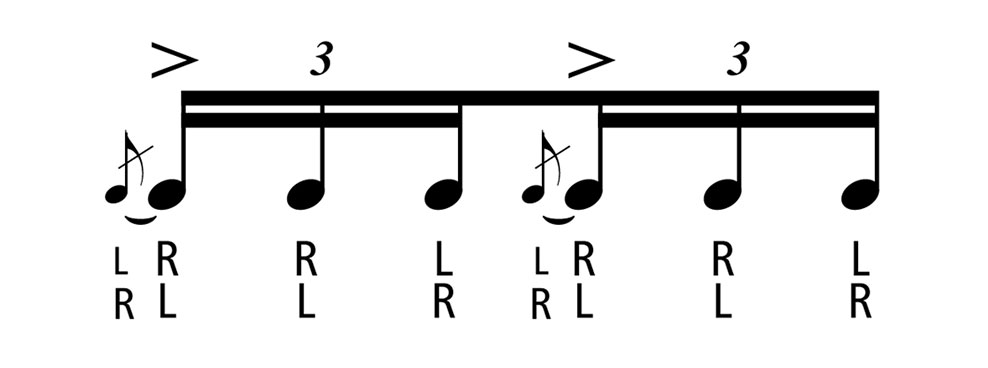Swiss Army Triplets are always fun to play. For one thing, they probably have the coolest name of all the standard rudiments.
The Origins
Why the Swiss Army? During the Renaissance period, Swiss mercenaries used drum rudiments to help coordinate their attacks. They fought with long spear-like poles and needed distinct drumming patterns to keep everyone on the same page. And it was the Swiss that wrote down on paper the first rudiments in 1612.
The Sticking
Similar to flam accents, Swiss Army Triplets are a triplet-based flam rudiment, but unlike flam accents, they use rebound for all the strokes, meaning they can be played comfortably at much higher velocities. The sticking of a Swiss Army Triplet is RRL RRL—or off the left, LLR LLR.

The Practice Method
As with other rudiments, the best way to practice them is by isolating each hand and playing with no flams. In the case of this rudiment, focus on a strong right-hand rebound double-stroke. You want some decay in the right hand from the first to second stroke, but do not choke it off so much that it becomes a staccato stroke. The double-stroke makes up the first two partials of the triplet with the left hand placed in to create an even triplet sound. Make sure that when the left hand is added, the three strokes form an evenly timed triplet. It is easy to “crush” the double-beat or play it too open; use a metronome playing straight triplets to make sure you are producing an even triplet.
Add a low left-hand grace note to complete the Swiss Army Triplet. The left hand makes its own low double-beat pattern between the third partial of the triplet and the grace note.
I also highly recommend practicing this rudiment off the left hand. Focusing on the left-hand double-stroke is really valuable to building left-hand strength and provides countless sticking options in your music, particularly when paired with flam taps.
The Benefits
Because this rudiment utilizes rebound, it is useful in high-energy fast phrases and not very useful in slow phrases. The double-stroke also results in both a strong first and second note of each triplet. If you want to only hear accents on the downbeats, opt for flam accents, not Swiss Army Triplets.


